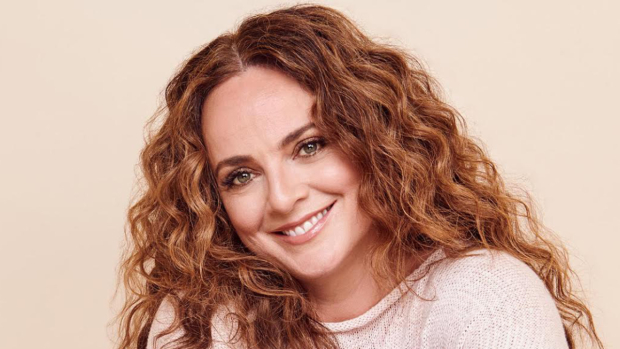Melissa Errico Reflects on Finding the Music in a Turbulent Year
From Covid quarantining to Inauguration Day, Errico discusses music’s promise of hope.

(© Jenny Anderson)
The past year has been full of shocks — philosophical, practical, fundamental — and perhaps the one that stalled me into a state of frozen disbelief was the idea that singing — the central act of my life — was now toxic. The pandemic had made it essentially impossible to sing in public, and I had started to wonder if I would ever sing to an audience again. And that made me start to wonder about the role of public singing, the role of music in our lives, and in our America.
I worried my way through the last few months, sometimes aloud. I thought to myself, I used to be an angel in the choir and now I am Typhoid Mary. How will we perform? But we did, on Zoom and things like it — in our closets, and on videos — and maybe, I figured, eventually, we will make song while masked, in person. How do we go on with our art? Where and how do we open our mouths to make music? What does technology promise and what does it hold back? How do we go on singing?
I came to mean it metaphorically: "How do we go on singing" means, how do we go on making music, reassuring our children that art matters and can be made — how do we go on teaching and inspiring at a time when schools are like hospital zones and inspiration can seem flat and fatuous? How do we make music in a dark time? There were technical and practical questions, of course, vital as they are (Help! how do you use an ethernet cable?), which to me were deeply overshadowed by the human ones. How have our ears and hearts and minds changed in making and listening to music through this unparalleled time, which struck music-making more than any other art?
I set about asking that question last autumn on my Instagram page, making an interview series in which I sat down, virtually, with people in every corner of the music world, from opera stars at the Met to school choir master's in public schools, all talking about singing, singers and music, past, present and future. I asked them all: How do we go on singing?
And so, I was struck and moved on Inauguration Day by just how much singing I heard. The act of singing wasn't secondary at all. It was the most primary connection that a country could have. The "set list" of the previous 24 hours had begun in a musical moment as beautiful as it was bizarre with the selection of Leonard Cohen's "Hallelujah" at the pandemic memorial at the Lincoln Memorial — that beautiful Buddhist-Jewish hymn to the follies of existence, whose lyrics, as many listeners know, are a complicated mélange of erotica and Judaica.
It was somewhat odd for a public memorial, but beautiful too. Its music casts a spell, and it was beautifully sung by Yolanda Adams. The song's lyrics reference King David and Jewish scripture — the story of David and Bathsheba, Samson and Delilah — but also, sexual tension and orgasm. Perhaps that was the positive point — time to conjure up the whole Megillah of sex and love and spirituality and soul mingled. Cohen describes the song as a moment of surrender when "you open your mouth and you throw open your arms and you just say 'Hallelujah!'"
The next day, there were others who opened their mouths and affirmed love with their voices. On the steps of the Capitol — a mere two weeks after the chaotic and angry coup — music offered solace, and we found joy and hope. But first!… Outgoing President Donald Trump was serenaded at Andrews Air Force Base as they played Journey's "Don't Stop Believing" — the music our favorite gangster, Tony Soprano, was (depending on who you ask) whacked to. And, Trump's exit song was "YMCA," essentially a gay cruising song, bringing the occasion to a level of awkwardness and wrong — the cringing melodic equivalent of his Four Seasons Total Landscaping press conference.
But later at the Capitol came the real, live singers. Enter Lady Gaga, resplendent in an oceanic red skirt and golden brooch seemingly fashioned by Hephaestus himself. Her national anthem was pure exuberance. And Jennifer Lopez sang "This Land Is Your Land" — with a burst of Spanish — and we were lulled by a second goddess with divine spark. They were twin Persephones rising from a half year of darkness. What moved me most was the entrance of Garth Brooks, the very square, very Republican country singer. Having him there to sing "Amazing Grace" was an amazing grace. He is a die-hard Republican with a die-hard Republican following. Solidly and gently, he sang, and invited us all to sing — through our masks — and through the frozenness that has become our stunned silence.
Lovely melodies and lovely voices. But we are injured listeners. We are scarred. There are so many losses, so many flags to mark those who have died. We are a disillusioned country. We have not sung for so long. Though I knew that there would be more voices and more singing later during the inauguration entertainment, I had, in the best sense, heard enough. We had shared the moment when, as Cohen said, you open your mouth and you throw open your arms and you just sing.
On Inauguration Day, there was music in America.







